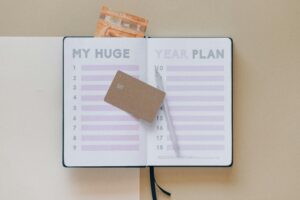Bouncing Back: A Friendly Guide to Managing Overdue Credit Card Payments

Hey there! If you’re feeling the heat from overdue credit card payments, you’re not alone. But don’t worry, we’re here to walk you through this with some friendly advice. Falling behind on payments can happen to anyone, but the good news is that there are effective steps you can take to get back on track. Let’s dive into them!
1. Don’t Panic, Take Stock
First things first, take a deep breath. Panicking only clouds judgment. The next step is to assess your situation. Gather all your credit card statements and note down how much you owe on each card, the interest rates, and the minimum payments due.
2. Reach Out to Your Credit Card Company
Communication is key. Contact your credit card issuer and explain your situation. Many companies have hardship programs or can offer temporary reduced payment plans. They might waive late fees or reduce your interest rate temporarily, making it easier for you to catch up.
3. Crafting a Budget
Now, it’s time to look at your overall financial picture. Create a budget that includes all your income and expenses. Identify areas where you can cut back. Every dollar you save can be redirected towards paying off your credit card debt.
4. Prioritize Your Debts
Not all debts are created equal. Prioritize paying off the cards with the highest interest rates first, as these are the ones costing you the most. Pay as much as you can on the high-interest card while paying the minimum on the others. Once the first card is paid off, move to the next one.
5. Consider a Consolidation Loan
If you have multiple credit cards with high balances, a consolidation loan might help. This is a personal loan that you use to pay off all your credit cards, leaving you with just one monthly payment, often at a lower interest rate.
6. Credit Counseling Agencies
Seeking help from a reputable credit counseling agency can be a wise move. These agencies can offer valuable advice, help you set up a debt management plan, and negotiate with creditors on your behalf.
7. Avoid the Minimum Payment Trap
While paying the minimum amount keeps your account in good standing, it doesn’t do much to reduce your balance. Try to pay more than the minimum whenever possible to reduce your principal balance faster.
8. Extra Income Opportunities
Look for ways to boost your income. It could be a part-time job, freelance work, or selling items you no longer need. Extra income can be a game-changer in paying down your debt faster.
9. Avoid New Debt
While you’re working on paying off your existing debt, try to avoid taking on new debt. Put your credit cards away and use cash or a debit card for your purchases. This helps in keeping your spending in check.
10. Track Your Progress
Regularly tracking your debt and watching it decrease can be incredibly motivating. Set small, achievable goals and celebrate when you reach them. This positive reinforcement can keep you focused on your debt-free goal.
11. Emergency Fund Importance
If possible, try to build a small emergency fund, even while paying off your debt. This can prevent you from falling back into the credit card trap in case of unexpected expenses.
12. Understand the Impact on Your Credit Score
Late payments can affect your credit score. Understanding this impact is important as it can affect your ability to get loans in the future. As you start making regular payments, your score should gradually improve.
13. Lifestyle Changes
Sometimes, getting out of debt requires some lifestyle changes. It might mean eating out less, skipping expensive vacations, or postponing major purchases. Remember, these changes are not forever, just until you get back on your feet financially.
14. Use Financial Tools and Apps
There are numerous apps and tools available that can help you track your spending and manage your debts. Utilizing these can provide you with a clear picture of your financial health and keep you on track.
15. Be Patient and Stay Determined
Debt payoff is a marathon, not a sprint. It might take time, but with determination and the right approach, you can definitely get there.
Falling behind on credit card payments can be stressful, but it’s a situation that can be rectified with patience, planning, and perseverance. Remember, it’s about taking small, consistent steps towards a debt-free life. By communicating with creditors, crafting a budget, prioritizing debts, and maybe picking up some extra work, you’ll find that light at the end of the tunnel. So, chin up and take those first steps. You’ve got this!
Unlock Full Article
Watch a quick video to get instant access.








